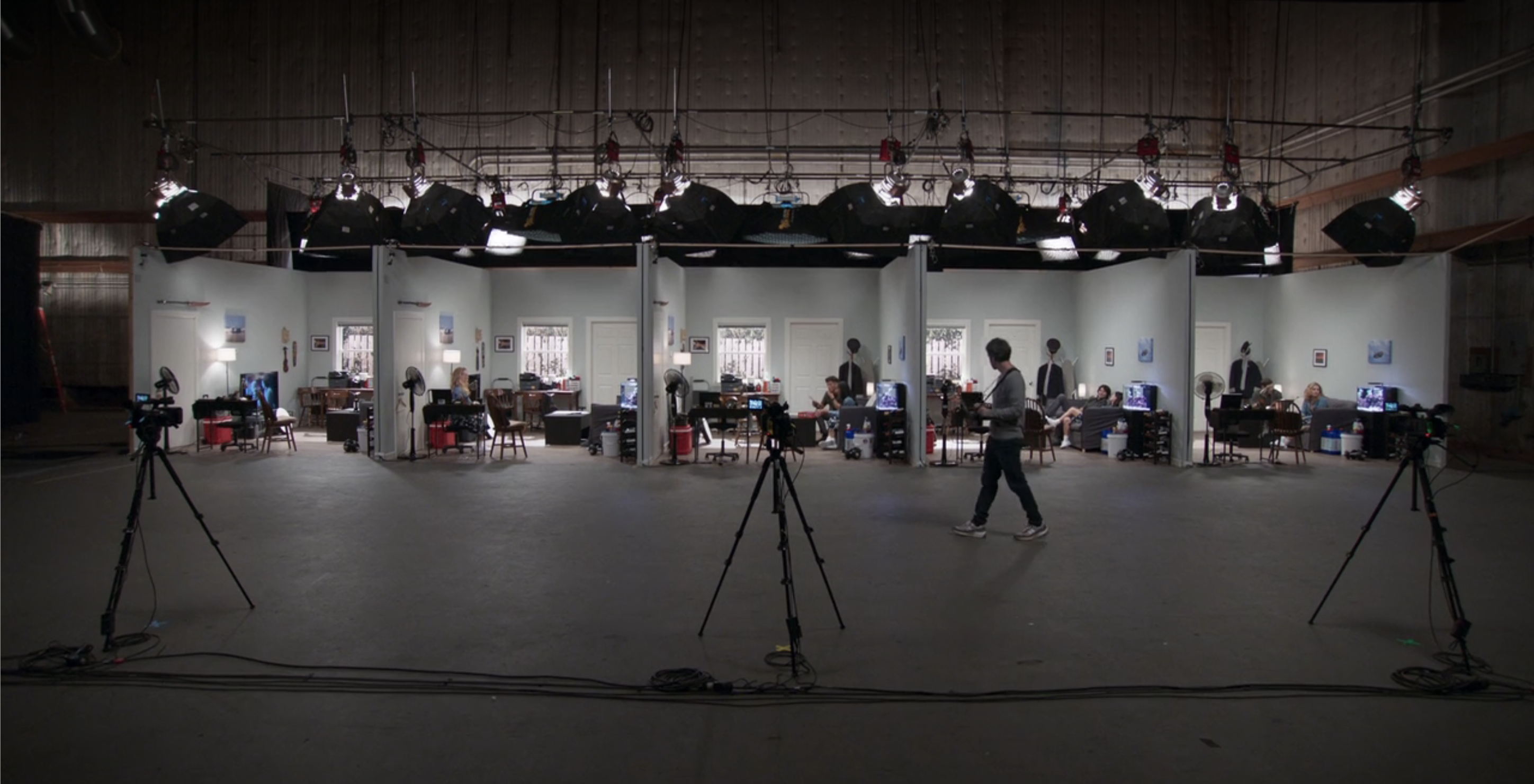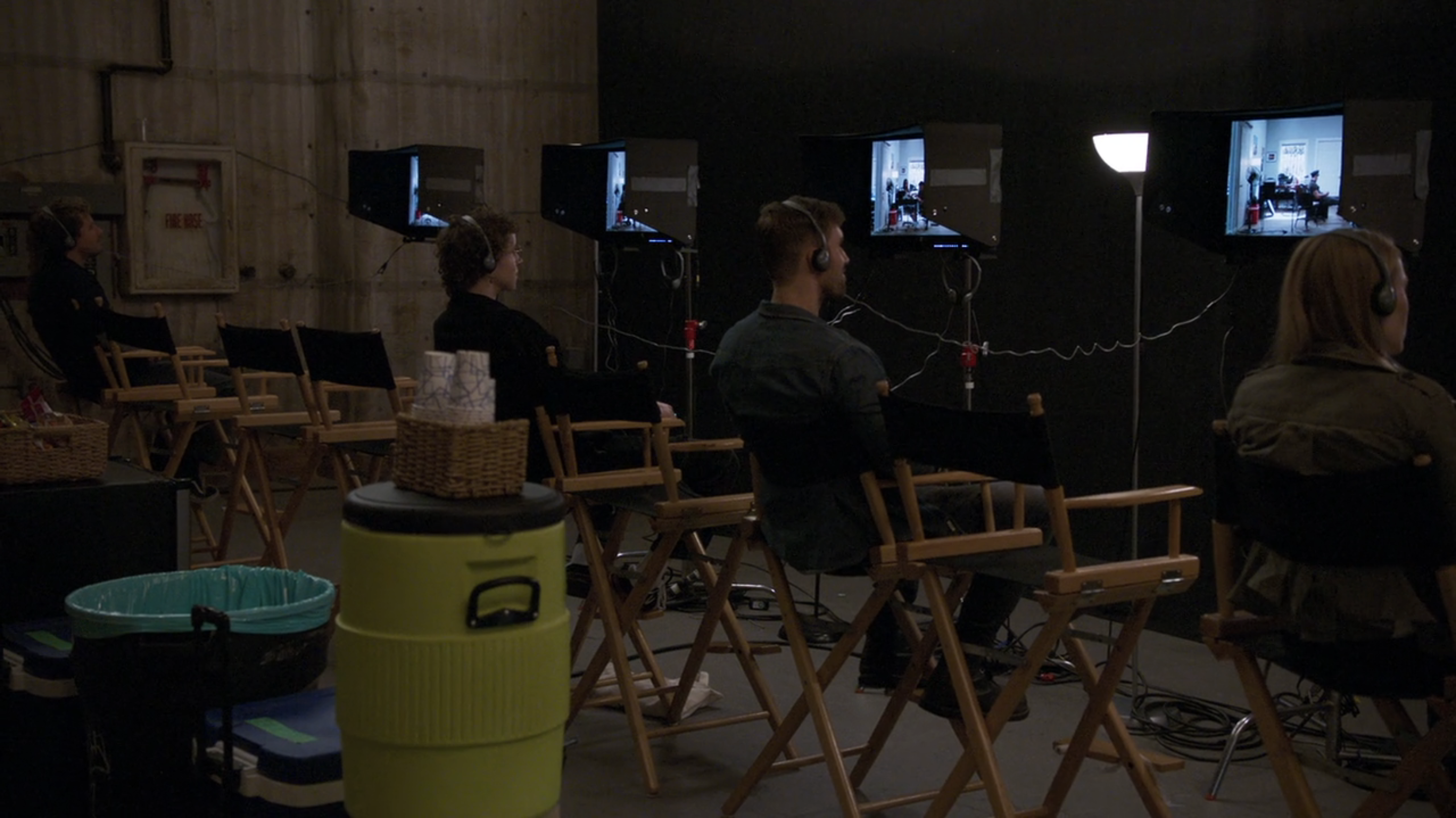I had previously written about The Rehearsal and other things like it (Werner Herzog, Kero Kero Bonito, Leos Carax), last February. The latest episode of The Rehearsal took up some of these questions, specifically the strange experience of “only acting.” In the latest episode of _The Rehearsal season 2, we see Fielder analyzing a budding romance between an awkward pilot and an actress that Fielder has recruited to serve as part of his “pack,” a group of roughly fifteen actors who shadow the pilot’s actions to build his confidence. To optimize this relationship, Fielder recruits five pairs of actors to simulate this relationship, having them spend hours together in a row of precise replicas of the pilot’s apartment. These actors, all significantly more confident and comfortable than either the pilot or his crush, quickly become more intimate than the actual relationship, having no trouble making the moves that our pilot persistently puts off.

In interviews with these actors, Fielder plays dumb, asking about the minutiae of signaling your attraction to another person. One particularly hard-to-watch interaction sees Fielder interrogate a woman about the “flirty trick women do” of looking from her lover’s eyes to his lips and then back again, as she fakes a subconscious indication of her desire for him to kiss her. The show sets up additional layers of artifice here—we have a “real” relationship, which is then simulated by actors, who are, in turn, performing unconscious motivations to communicate desires silently. “Real” has to remain in scare quotes in the context of this show. If we were to draw a line with reality at one end and artifice at the other, unconscious desires and feelings only appears at the far end of artifice, as far away as possible from the “real” situation that Fielder simulates.

Fielder’s rehearsal adds another dimension when he asks the actors if they, in turn, are in “real” relationships. He then has these actors invite their boyfriends to a viewing room where they observe their acting out this relationship, which mostly involves them making out on the couch. While the show attempts to tease out subtle tensions in their viewing, these men largely express support of their partners’ acting. “I was realizing there’s this magical thing that happens,” Fielder says in a voice over, “when people say that they’re acting.” For Fielder, this situation shows more than the fact that someone could get away with kissing someone else (or more) while in a monogamous relationship. That’s only part of the joke here; he’s more interested in the fact that acting seems to imbue the actor with a kind of “magic” confidence: to do something they wouldn’t “really” do, with someone they wouldn’t “really” do it with, to communicate desires they don’t “really” feel.
Scholars and theorists in performance studies have surely worked out and debated a more complicated account of the ontology of performance and its distinction from reality, but I’m interested in Fielder’s lay theorization of performance—of “only acting”—here. The anthropologist Susan Lepselter has studied UFO conspiracy theorists as an example of ordinary theorization. While their ideas are developed in different ways and reach different conclusions than academic, “real” theory, she finds that these practices are related, if not continuous. In both cases, theorization derives from a desire to understand the world and from a felt sense of the world’s brokenness around you. As Lepselter puts it, “they just know something is wrong.” For all its ludicrousness, The Rehearsal works because it taps into a real sense that something is off with the world. That off-ness is less the plane crashes that provide the impetus for this season’s ever-grander rehearsals (even with the recent spate of problems, these are still a very rare phenomenon). And the kind of pain, hurt, awkwardness, and loneliness that The Rehearsal explores extend beyond even recent political developments that have caused the kind of deregulation to raise the risk of plane crashes. No, Fielder explores something inextricably off, if not broken, at the heart of what it means to be human. The show circles around this lack and, in the process, develops new language to describe this unavoidable feeling.
I won’t try to name it here, as there are still two more episodes in this season and I’ve only had one cup of coffee so far. But Fielder has already shown us that we are most real only when we are most artificial, and vice-versa.